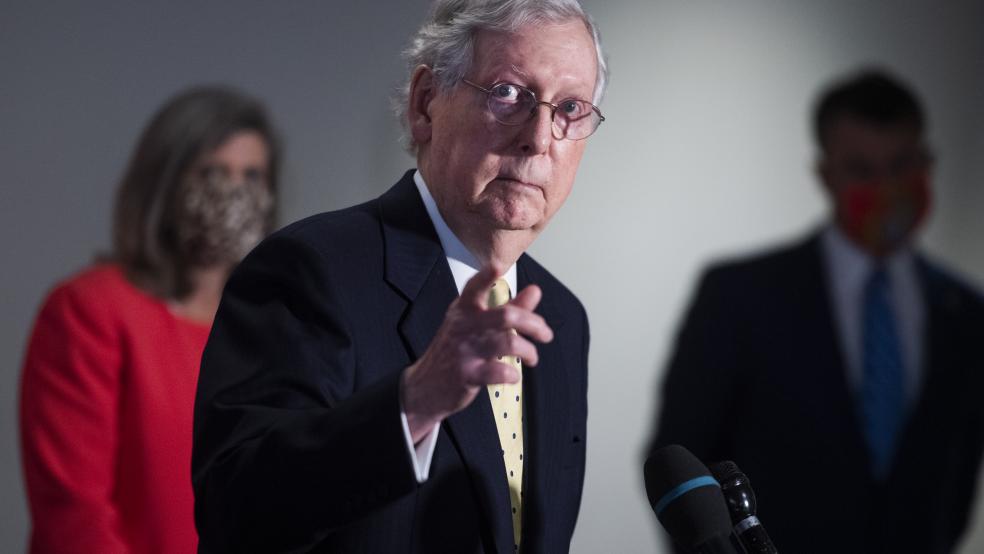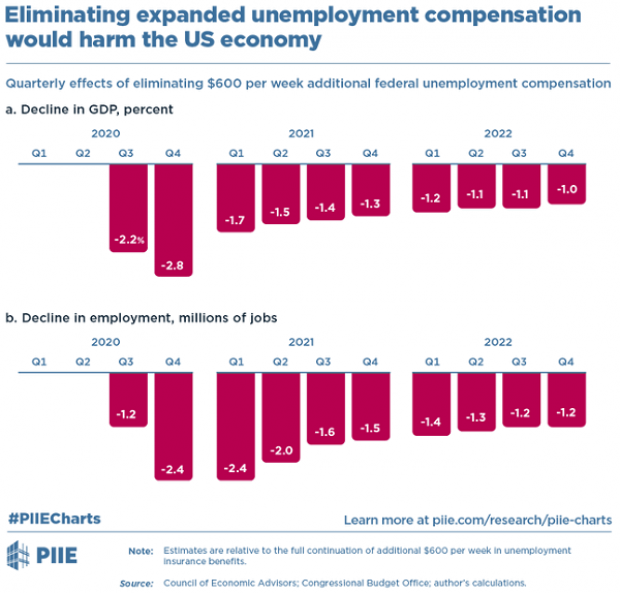As Senate Republicans and the White House try to reach consensus on their proposal for the next coronavirus relief bill, they are also discussing a possible extension of enhanced unemployment benefits, acknowledging that a broader deal isn’t likely to be reached before the $600-a-week payments are set to expire at the end of July.
“I think we should do the whole thing,” Sen. Rob Portman (R-OH) said, “but if we can't get it all done by next week we cannot allow there to be a cliff in unemployment insurance given that we're still at about 11% unemployment. I think we need to do something and [in] the interim period we can have a compromise.”
A big cut: The extension under consideration would likely reduce the benefit dramatically from the current $600 a week. Portman said Wednesday that GOP lawmakers were discussing a possible two-month extension of enhanced benefits, but at a lower level, with $200 per week being cited by some White House advisers. CNBC reports the extension now under consideration would lower the supplemental payment to $100 a week and last through the end of the year.
The $600 per week payments have played a major role in maintaining household incomes and economic demand in the face of the worst employment crisis in decades. A potential extension would allow more than 20 million Americans to continue to collect extra unemployment benefits.
An agreement on an extension is far from a sure thing, however, even as lawmakers are struggling to reach a deal on a broader package. Comments from White House Chief of Staff Mark Meadows late Wednesday suggests that the administration may be backing away from a short-term extension, leaving the issue very much up in the air.
Some top Democrats object: Democrats have proposed continuing the $600 payments through January, and top Democratic lawmakers expressed concerns about a shorter-term extension. “I would prefer to reach agreement on a comprehensive response to the crisis, including an extension of unemployment assistance; state, local and tribal government assistance; and other priorities,” House Majority Leader Steny Hoyer said Wednesday, according to Bloomberg News. Sen. Ron Wyden of Oregon, the ranking Democrat on the Senate Finance Committee, reportedly accused Republicans of trying to stall.
The risk: Some economists are expressing concerns about the shockwave that could be caused by bringing the unemployment payments to an end. In an analysis published by the Peterson Institute for International Economics earlier this month, former Obama economic adviser Jason Furman said that allowing the enhanced benefits to come to an abrupt halt would remove some $50 billion a month from the economy, reducing household spending, business operations and GDP.
Eliminating the federal benefit boost permanently would cause GDP to shrink by more than 2% in the second half of 2020, Furman said, while reducing employment by about 2 million (see the chart below).
Lowering the weekly payment, which seems more likely than total elimination, also carries economic risk. Economist Ernie Tedeschi, who worked in the Treasury Department during the Obama administration, told The Washington Post that cutting the payment by two-thirds would have a powerful negative economic effect. "If they lowered it to $200 a week, 30 million workers would wake up with a pay cut from a third to a half overnight," Tedeschi said. "While $200 is marginally better than full expiration, the U.S. would still take a major economic hit from this summer and this fall as a result from it."
The timing poses challenges, too, since most states will send out their last checks in the program at the end of this week, creating a rapidly approaching fiscal cliff as clunky state-level unemployment offices shut the program down, while likely needing weeks to turn it back on again in the event of new legislation.






